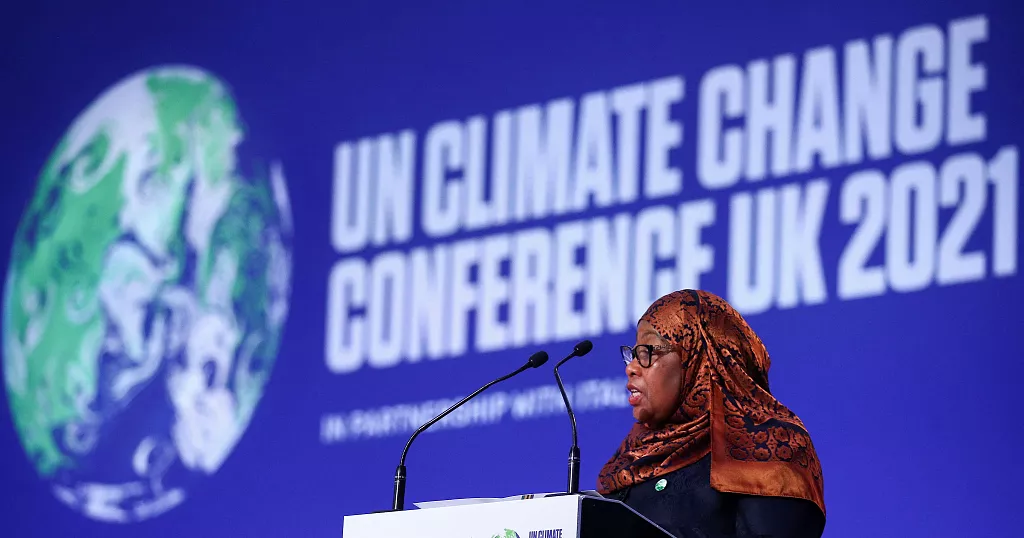The world is at a critical juncture in the fight against climate change, and the upcoming COP28 conference presents a ray of hope. The proposed blueprint accelerates global efforts to mitigate climate change and transition to a low-carbon future. As a developing nation, Tanzania stands to be significantly impacted by the outcomes of COP28.
The COP28 blueprint seeks to build upon the commitments made during previous climate conferences and reinforce the Paris Agreement’s targets. Focusing on reducing greenhouse gas emissions, transitioning to renewable energy sources, and fostering international cooperation, the blueprint aims to limit global warming to well below 2 degrees Celsius and pursue efforts to limit it to 1.5 degrees Celsius above pre-industrial levels.
As an emerging economy in East Africa, Tanzania faces a unique set of challenges that the COP28 blueprint could further exacerbate. The nation heavily relies on agriculture, which is susceptible to the impacts of climate change, including erratic weather patterns, prolonged droughts, and extreme temperatures. Moreover, the country’s energy sector is heavily dependent on fossil fuels, leading to environmental degradation and vulnerability to fluctuations in oil prices.
Implementing the COP28 blueprint will require substantial financial investments and technological advancements, which may pose a challenge for a country with limited resources. Additionally, the transition to renewable energy sources and low-carbon technologies could lead to job displacements in traditional sectors like agriculture, contributing to about half of the country’s GDP, requiring careful planning and targeted measures to ensure a just transition for the workforce.
Despite the challenges, the COP28 blueprint also presents several opportunities that could catalyze Tanzania’s economic growth while ensuring sustainable development. One of the most significant opportunities lies in harnessing the nation’s abundant renewable energy potential. Tanzania is blessed with ample sunlight and vast wind resources, making it a prime candidate for scaling up solar and wind power generation. Embracing renewables could enhance energy security and attract foreign investments in the clean energy sector, driving economic diversification.
Empowering Tanzania’s Climate Resilience Through COP28 Cooperation
Furthermore, COP28’s emphasis on international cooperation allows Tanzania to engage with developed nations and access climate finance mechanisms. This financial support could bolster the country’s adaptation and mitigation efforts, empowering it to build climate-resilient infrastructure, promote sustainable agriculture practices, and invest in green technologies.
The COP28 blueprint also fosters innovation and technology transfer, which could benefit Tanzania’s economy in numerous ways. By collaborating with international partners, the country can adopt cutting-edge technologies that improve resource efficiency, optimize agricultural practices, and promote eco-friendly industries.
While transitioning to a low-carbon economy may displace jobs in traditional sectors, it also opens the door to new opportunities. Investing in renewable energy projects and sustainable infrastructure can create green jobs nationwide. Skilled workers will be needed to install and maintain solar panels, wind turbines, and other clean energy technologies, driving employment and economic growth.
Balancing Challenges and Opportunities for Tanzania’s Sustainable Future
Moreover, the adoption of sustainable practices in agriculture and forestry can enhance productivity and increase rural incomes, thus promoting inclusive economic development. Harnessing sustainable tourism can also unlock Tanzania’s vast potential in this sector, attracting environmentally-conscious travelers and generating revenue while preserving the country’s rich natural heritage.
The COP28 blueprint represents a crucial step towards combating climate change globally. For Tanzania, this ambitious plan offers both challenges and opportunities. As a developing economy, the country must transition to a low-carbon future while safeguarding its vulnerable sectors and workforce.
However, the blueprint also presents a chance for Tanzania to embrace sustainable development, harness renewable energy, and access international climate finance, which can fuel economic growth and foster a more resilient nation.
To realize the potential benefits, Tanzania needs to adopt a proactive approach, collaborate with international partners, and devise comprehensive policies that align with the COP28 objectives. By embracing the opportunity to build a greener, more sustainable future, Tanzania can position itself as a leader in climate action and contribute to the global fight against climate change.

